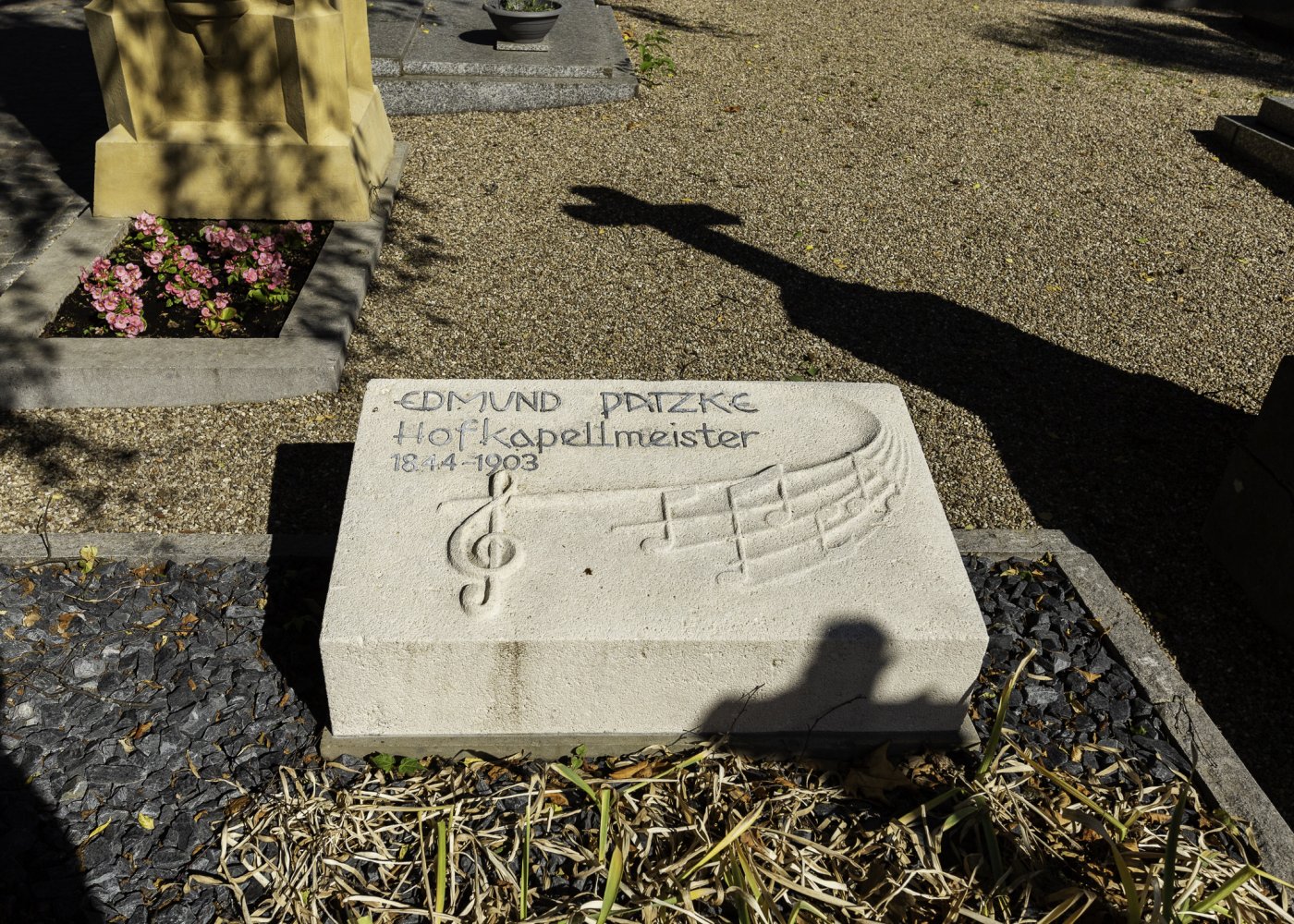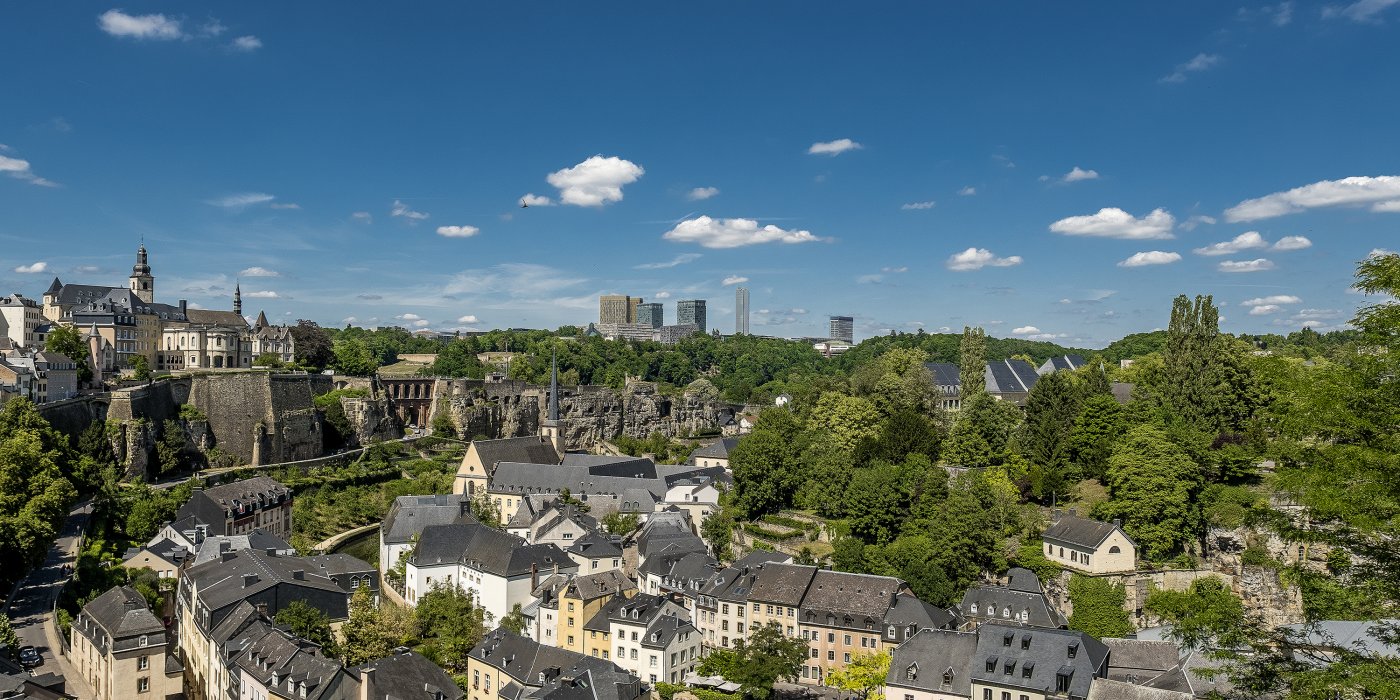Description
Edmond Patzké was born in Niklasdorf – a town in Silesia, Austria – on 7 March 1844, and died on 21 November 1903 in Luxembourg City. The burial monuments honouring Jean-Antoine Zinnen, N. S. Pierret and Captain Guillaume Weydert (1903), the monument to Laurent Menager in the Val des Bons Malades Cemetery in Pfaffenthal and the public monument to poets Michel Lentz and Edmond de la Fontaine were all erected in 1902 and 1903. Patzké did not receive a similar honour – his grave is a simple rectangular stone inscribed with a treble clef and floating notes, his name, and his title, "Hofkapellmeister". Patzké may have been treated differently from the other artists because he was not a Luxembourger by birth, and because he founded and conducted the band of the 84th Regiment of the Austrian infantry. Patzké took part in the 1859, 1864 and 1866 military campaigns, during which he led his regiment to Italy and Prussia. At the request of Austria's Archduke Friedrich (1856–1936), through an appointment by the King-Grand Duke William III, Patzké was summoned to politically neutral Luxembourg to reorganise the military band of the Luxembourg Police and Volunteer Corps based on the Austrian model. Edmond Patzké and Gustav Kahnt sometimes served simultaneously as the conductors of the First Battalion. Patzké died on 21 November 1903 and was buried two days later in the Notre-Dame Cemetery. The funeral procession was escorted by members of the military chaplaincy. Wreaths of flowers adorned the hearse. Members of the police force, chief warrant officers, deputies, members of various musical societies and many other mourners accompanied Patzké on his final journey.
In addition to fulfilling his responsibility to improve the band he conducted, he dedicated himself to arranging scores written by contemporary French composers. He worked with music publishers based in Berlin and Vienna. His wife, Gerta Benda, died at the age of 80 and was buried alongside him in April 1924. The couple had no children, and their closest relatives lived in Breslau (now Wrocław).
His works include:
- Messe in F für 4 Singstimmen (1884), Messe in F (kl. A), for wind sections:
- Alpenblume, Muzurka;
- Anna Mirl, Polka-Mazurka;
- Auf’s Wohl, Galopp;
- Dame Patronesse, Polka, Grand-Duc Adolphe, Marsch;
- Salut à Luxembourg Marsch, Idylle, Polka;
- Les muguets, Mazurka;
- Maiglöckchen, Mazurka;
- Mit Herz und Hand fürs Vaterland, Marsch;
- Santa Lucia, Marsch;
- Verliebte Augen, Salon Polka, Vivent les Ardennes, Marsch.


















